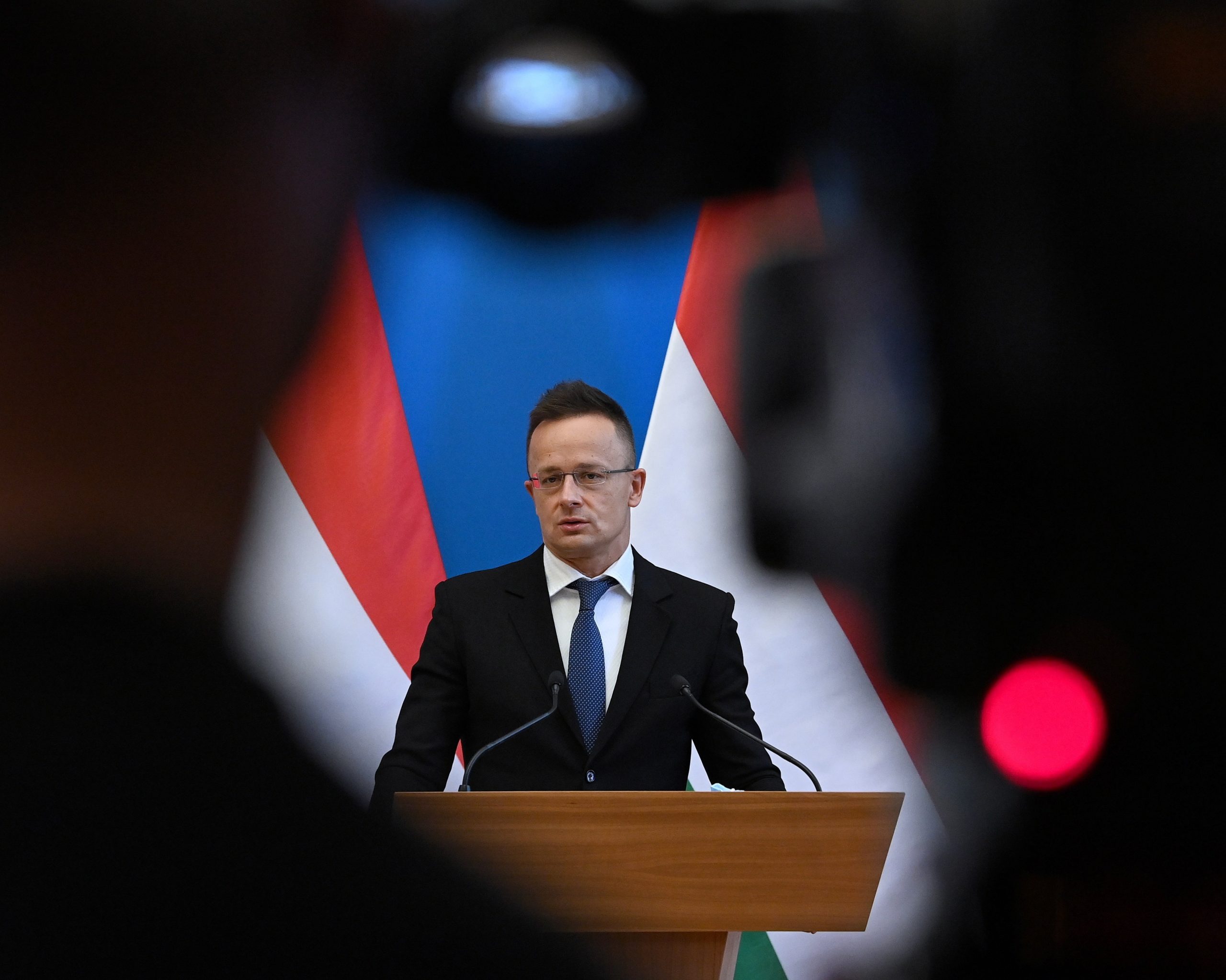
The group justified the assault with the Hungarian government's supposed friendly stance towards Russia. Reacting to the action, Justice Minister Varga wrote: "The world-famous leftist freedom of the press is being manifested."Continue reading

Russian hackers have been attacking Hungary, especially the Ministry of Foreign Affairs and Trade (KKM) for at least a decade now. According to a recently published article by investigative outlet Direkt36, some of the attacks are believed to be carried out by Russian state agencies; moreover, the hackers have managed to breach the entire IT system of the ministry. These cyberattacks proved so successful, that even now during the war in Ukraine, they may have partial access to some of the information transmitted on the Hungarian foreign ministry’s networks.
According to the investigative and whistleblower outlet Direkt36, by the second half of 2021, Russia had already completely compromised the ministry’s computer network and internal mail system, and had hacked into the encrypted network used to transmit “restricted” and “classified” state and diplomacy related information, which can otherwise only be used under strict security conditions.
An internal document obtained by Direkt36 even showed that the Foreign Ministry was still under targeted attacks in January 2022. Former secret service officers told the portal that they believe traces of the Russian cyberattack on the Ministry’s communication channels suggest that hacker groups of the Russian secret services are behind the operations.
The portal reports that these hackers work for either Russia’s security agency, the Federal Security Service (FSB), or Russia’s foreign military intelligence agency, the GRU. Several sources told Direkt36 that these hackers have been well known to Hungarian state agencies for a long time, as they have been continuously attacking government networks for at least a decade now.
By hacking the foreign ministry’s networks, Hungary’s diplomatic activity virtually became an open book for Moscow, Direkt36 notes.
Russia was able in advance to determine what the Hungarian foreign ministry is doing and planning, they write. Furthermore, this happened during a very sensitive time period. Russian contagion remained active before and partly after the invasion of Ukraine, and during the current EU and NATO crisis talks, Direkt36 noted, adding that meanwhile there is no sign that the Hungarian government has raised any public complaint with Russia about the attack.
According to the portal, the malicious softwares infected the Hungarian Ministry of Foreign Affairs partly through phishing attacks and emails, and then spread throughout its entire internal network. The computers of the Ministry’s main building in Budapest’s Bem József Square, and more than 150 buildings of more than 90 foreign missions were all affected. According to former officials, the infiltration had been hidden for so many years and was discovered so late that it is impossible to tell exactly at what entry points and in how many different ways the Russians had hacked into the foreign ministry’s systems.
When Russian Foreign Minister Sergey Lavrov pinned the Order of Friendship, Russia’s highest state decoration that can be given to foreign nationals, on Péter Szijjártó’s suit in Moscow on December 30, 2021, the Hungarian Foreign Minister already knew that Russia’s secret services had attacked and managed to hack the IT systems of the Ministry, which he has been heading since 2014, Direkt36 reports.
Direkt36 asked the Ministry of Foreign Affairs, the Ministry of the Interior (which is primarily responsible for cyber defense and counter-intelligence operations), and the Prime Minister’s Cabinet Office, about the attacks, but none of the ministries responded to the outlet’s questions.
Direkt36 has reconstructed the Russian intelligence operation against the Hungarian foreign ministry, its origins going back at least a decade, and the inadequacy of the counter-intelligence measures taken, with the help of foreign ministry documents and more than thirty background interviews.
After news of the Russian cyberattacks started to spread in the Hungarian media, the press department of the Ministry of Foreign Affairs sent the following reply to several outlets:
“We do not pay attention to campaign lies.”
In the featured photo: Foreign Minister Péter Szijjártó. Photo by Zoltán Máthé/MTI